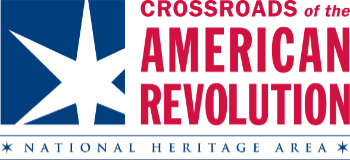Biography People
Dr. William Bryant Full Biography
I was born January 3, 1730 into the family of Captain William and Eleanor Bryant in New York City. My father was a ship captain and merchant. He was absent from home for several months at a time during the several voyages he made each year between New York and London, England.
I graduated from Yale College at age 17 and really wanted to be a surgeon. The best place to learn that profession was in France, so I went there to study. I returned to America after the several years of study and received my master’s degree from Yale in 1757. The war that became known to us as the French and Indian War had begun in 1754. I was now 27 years old and to help my country I served the British army as a surgeon. British troops conquered the French-owned island of Guadeloupe in the West Indies on May 2, 1759 and I began service there on June 25 as a “Staff Surgeon.” Upon arriving, I found that all the hospital supplies sent out with the army had been used and that several members of the medical staff had died. While serving with the army I treated more soldiers for tropical diseases rather than battle wounds. In addition to my other duties, when a new governor of the island arrived in June of 1760, I became his personal surgeon.
When the war ended with the Treaty of Paris in 1763, I began serving on the West Indies Island of Grenada as both “Staff Surgeon” and “Purveyor to the Forces” for the British troops stationed there. After about three years, on April 5, 1767, I retired with a half-pay pension.
I returned to New York City and found my aged father no longer making sea voyages. I saw a newspaper advertisement for the sale of the 200-acre Kingsbury plantation of Robert Lettis Hooper at Trenton. This was the house and land first settled by William Trent about 1719, the man who gave his name to the town of Trenton. I purchased it for £2,800 on October 28, 1769 and moved there with my wife, Mary.
The residents of Trenton had been debating the unpopular laws and taxes Parliament passed after end of the French and Indian War. These included the Proclamation of 1763, the Sugar Act (1764), the Stamp Act (1765), and the Townshend Acts (1767). Trenton residents knew all about the acts and protests against them from conversations with the many travelers passing through their town and the readily available Philadelphia and New York City newspapers. People developed their individual opinions, but everyone united in protesting against the laws. However, no one argued for independence from Great Britain, and the King continued to be an object of loyal devotion.
I quickly acquired a reputation as a skilled physician and man of integrity. By November 1769, I was a member of the Trenton Presbyterian Church, whose members deeply supported the protests. I paid taxes in 1773/1774 for my 200 acres of land, 13 horned cattle, two enslaved men over the age of 16, and one riding chair, considered a luxury. Protests against the acts of Parliament were becoming even stronger and although I felt pressured to take a side, I resisted it. I was not a man of politics and just tried to avoid all the controversy. If I actively supported the protests, I might lose my half-pay pension. I was not poor, but my health was not strong and I might need that pension at some point.
I received orders to join the British army besieged at Boston in late 1775. If I refused to go, I would lose my pension. I was able to remain in Trenton by asking the New Jersey Committee of Safety to let me go to Boston and it naturally refused. They also had me sign a parole that I would “not go farther than twelve miles from my present place of residence, except to Philadlephia, without leave of the Congress.” To the British, this made me look like a good Loyalist while my Patriot friends helped me protect my pension.
While some pepole considered me to be a Loyalist, I took no actions to oppose the revolution and was never personally attacked by Patriots or had my land confiscated. With my health deteriorating, on October 28, 1778 I sold my plantation and moved into Trenton village. I went into partnership with Dr. Nicholas de Belleville, a former Continental Army surgeon whom I had convinced to settle in Trenton.
By March 1783, my bad state of health led me to retire, although only 53 years old and described by Dr. Belleville as older than my years. I died “of an apoplexy” on January 11, 1786 at the young age of 55. Today, the house I lived in on my Kingsbury plantation at Trenton is the William Trent House Museum.
Note: Although Dr. Bryant is generally referred to by historians as a Loyalist or having Loyalist tendencies, the evidence used to support that conclusion is basically flawed and stronger evidence indicates his neutrality. To learn more about him, visit the Trent House Museum.
